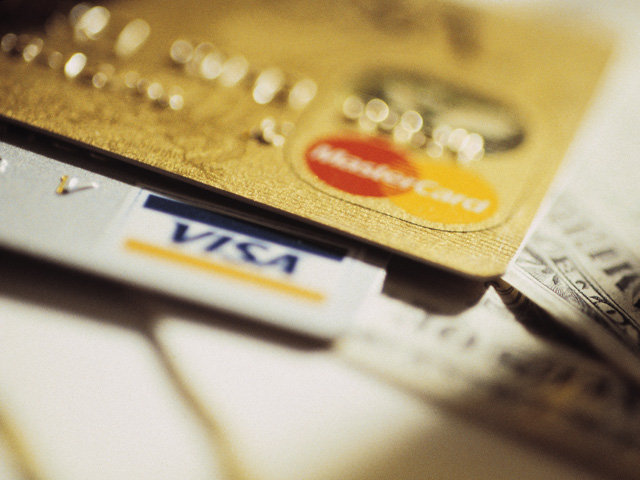Saving money is an essential part of building a strong financial foundation. However, it’s not always easy to know where to start. Cutting back on unnecessary expenses is an effective way to save money without sacrificing your quality of life. In this blog post, we’ll discuss how you can save money by cutting back on unnecessary expenses.
Create a Budget
The first step in cutting back on unnecessary expenses is to create a budget. A budget will help you identify where your money is going and where you can cut back. Start by listing all your income sources and expenses. Categorize your expenses into fixed and variable expenses. Fixed expenses are bills that remain constant each month, such as rent, mortgage payments, and car payments. Variable expenses are expenses that fluctuate from month to month, such as groceries, dining out, and entertainment.
Once you have listed all your income sources and expenses, calculate your total income and total expenses. Compare your total income with your total expenses to determine if you’re spending more than you earn. If you’re spending more than you earn, you need to cut back on your expenses to balance your budget.
Cut Back on Eating Out
Eating out can be expensive, especially if you do it frequently. A simple way to save money is to cut back on eating out. You don’t have to stop eating out altogether, but you can limit the number of times you eat out each month.
Start by planning your meals at home. Make a grocery list and stick to it when you go shopping. Cooking at home is not only cheaper, but it’s also healthier. You can control the ingredients and portions, which can help you save money and stay healthy.
If you do eat out, try to choose restaurants that offer discounts or specials. You can also save money by ordering water instead of expensive drinks. Additionally, you can share a meal with a friend or family member to save money.
Cancel Subscriptions
Subscription services are convenient, but they can add up quickly. If you have subscriptions to services you don’t use or need, cancel them to save money.
Start by making a list of all your subscription services. Identify which services you use regularly and which ones you don’t use. Cancel the services you don’t use or need. You can also try negotiating a lower rate for the services you use regularly.

Use Coupons and Promo Codes
Coupons and promo codes can help you save money on your purchases. Before you make a purchase, check to see if there are any coupons or promo codes available.
You can find coupons and promo codes on coupon websites, social media, and email newsletters. Additionally, some stores offer discounts to customers who sign up for their loyalty programs.
Cut Back on Entertainment
Entertainment can be expensive, but there are ways to cut back without sacrificing your fun. Start by finding free or low-cost activities in your area. You can visit museums, parks, and other attractions that offer free admission.
If you enjoy going to the movies, consider renting movies instead of going to the theater. You can also have a movie night at home with friends or family members. Additionally, you can attend free community events, such as concerts and festivals.
Reduce Energy Consumption
Reducing your energy consumption can help you save money on your utility bills. Start by turning off lights and electronics when you’re not using them. You can also unplug electronics when they’re not in use to save energy.
Additionally, you can adjust your thermostat to save money on heating and cooling costs. In the winter, set your thermostat to 68 degrees or lower when you’re home and 55 degrees or lower when you’re away. In the summer, set your thermostat to 78 degrees or higher when you’re home and 85 degrees or higher when you’re away. You can also use ceiling fans to help circulate air and reduce your cooling costs.
Another way to reduce your energy consumption is to use energy-efficient light bulbs and appliances. Energy-efficient appliances and light bulbs use less energy and can help you save money on your utility bills over time.
Shop Smart
Shopping smart is another way to cut back on unnecessary expenses. Start by making a shopping list before you go to the store. Stick to your list and avoid impulse purchases.
You can also shop for deals and discounts. Check for sales and clearance items before making a purchase. You can also shop at discount stores or buy in bulk to save money.
Additionally, consider buying used or refurbished items instead of new items. Used and refurbished items can be just as good as new items, but they are often sold at a lower price.
Reduce Transportation Costs
Reducing your transportation costs can also help you save money. If possible, try to walk, bike, or take public transportation instead of driving. Walking and biking are not only good for the environment, but they can also help you save money on gas and maintenance costs.
If you need to drive, consider carpooling with coworkers or friends. Carpooling can help you save money on gas and reduce wear and tear on your car.
Cut Back on Credit Cards Use
Credit cards can be convenient, but they can also lead to overspending and high-interest rates. To save money, cut back on your credit card use. Try to pay off your credit card balances in full each month to avoid interest charges.
If you have credit card debt, consider transferring your balances to a card with a lower interest rate. You can also try negotiating a lower interest rate with your credit card company.
Set Savings Goals
Setting savings goals can help you stay motivated and focused on your financial goals. Start by setting realistic savings goals. You can set short-term goals, such as saving $500 for a vacation or a new computer, or long-term goals, such as saving for retirement or a down payment on a house. If you would like additional free advice, tips, and timely, current information about credit monitoring, check out their page to learn more.
Once you have set your savings goals, create a plan to achieve them. Identify how much you need to save each month and adjust your budget accordingly. You can also use automatic savings plans or apps to help you save money.
In conclusion, cutting back on unnecessary expenses is an effective way to save money and achieve your financial goals. Start by creating a budget, cutting back on eating out, canceling subscriptions, using coupons and promo codes, reducing energy consumption, shopping smart, reducing transportation costs, cutting back on credit card use, and setting savings goals. With these tips, you can save money and build a strong financial foundation.








